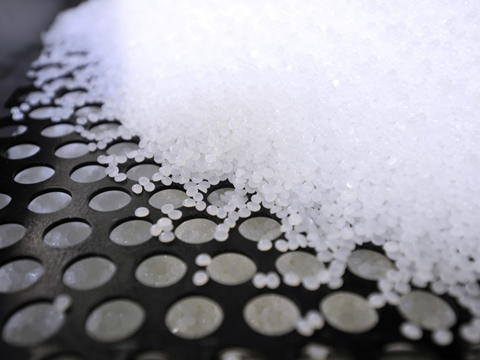
Henkel will incorporate Synthomer’s CLIMA resins into its TECHNOMELT hot melt adhesive portfolio in a strategic partnership and supply agreement, hoping to lower carbon emissions by at least 20% while maintaining product quality.
Synthomer recently launched its CLIMA brand tag, which encompasses products said to be manufactured using renewable energy to achieve a “validated and quantifiable” reduction in cradle-to-gate CO2 footprint.
As well as utilizing renewable electricity, biogas, and process optimization, it measures its carbon emissions through TÜV SÜD-verified Product Carbon Footprint reporting, which align with ISO14067 standards and the Together for Sustainability (TfS) guidelines.
Now its CLIMA resins will be integrated into Henkel’s TECHNOMELT portfolio, which caters to various industries, including packaging and consumer goods. Incorporating raw materials with reduced process emissions footprint into Henkel’s adhesive formulations is expected to help lower Scope 3 emissions without affecting overall product quality, reliability, or results.
Together, the companies have developed a framework linking renewable energy use with specific adhesive products, aiming to achieve measurable reductions in carbon emissions across Henkel’s markets in Europe, India, the Middle East, and Africa.
Henkel has set goals to lower its absolute Scope 3 greenhouse gas emissions by 30% by 2030 (against a 2021 base year), and to reach net-zero by 2045. Meanwhile, Synthomer plans to cut absolute Scope 1 and 2 greenhouse gas emissions in its manufacturing processes by 47% by 2030 (against a 2019 base year) in line with its Science-Based Targets goals.
“As industry leaders in the adhesives market, we share the responsibility to drive meaningful change,” said Pernille Lind Olsen, corporate senior vice president for Adhesive Technologies Henkel. “By partnering with suppliers like Synthomer who are equally committed to transparency, innovation, and verifiable climate action, we’re not just reducing emissions, we’re redefining what leadership looks like in our industry.”
“We are proud to support Henkel and their customers with novel adhesive solutions based on a significantly reduced carbon footprint,” added Stephan Lynen, president for Adhesive Solutions at Synthomer.
“Our capability is based on our broad portfolio of high-performing adhesive ingredients, a global production and development network paired with a relentless passion for innovation and sustainability. We continue to engage with partners to create sustainable value chains and reduce carbon emissions on our planet.”
Last year, Henkel Adhesive Technologies worked with Dow and Kraton Corporation to reduce the carbon footprint of its TECHNOMELT SUPRA 100 LE and TECHNOMELT SUPRA 106M LE formulas for end-of-line packaging. It partially credited Kraton’s REvolution rosin ester technology for a 25% carbon footprint reduction, while Dow’s AFFINITY GA polyolefin elastomers seek to improve packaging performance in extreme temperatures.
Henkel Adhesive Technologies also incorporated 49% directly biobased raw materials and 30% ISCC-certified mass-balanced material into a biobased hot melt, aiming to save 7,500kg of CO2 in folding carton, tray, and wrap-around packaging applications every year.
More recently, the company has revealed a ‘fully recyclable’ heat seal coating made from ‘harmless ingredients’. As such, it is expected to apply to direct-contact paper-based packaging for food, pharmaceuticals, home care, and other products.
If you liked this story, you might also enjoy:
The ultimate guide to the Packaging and Packaging Waste Regulation in 2025
How are the top brands progressing on packaging sustainability?
Everything you need to know about global packaging sustainability regulation in 2025
The key to increasing the use of reusable packaging in supermarkets














No comments yet